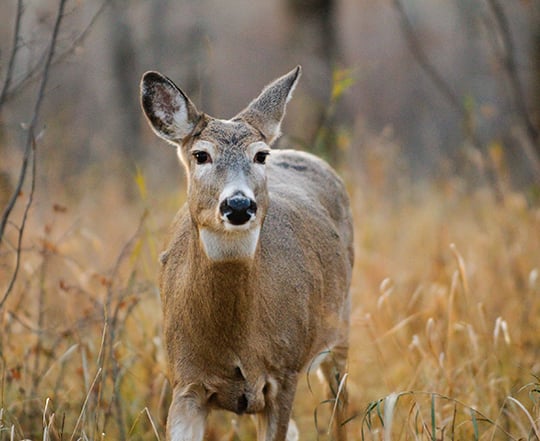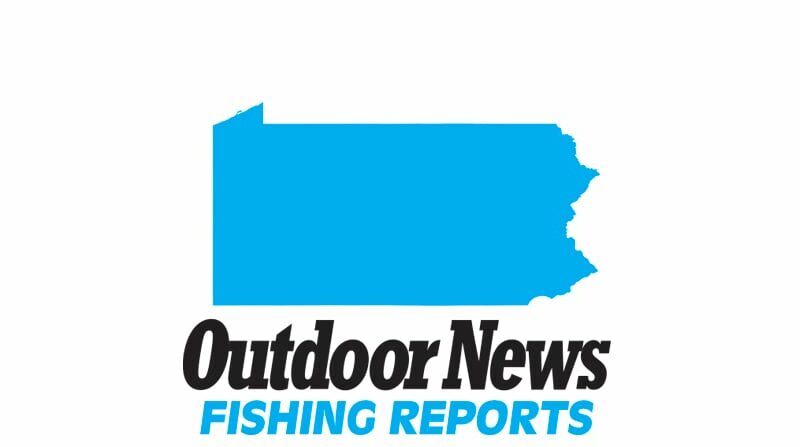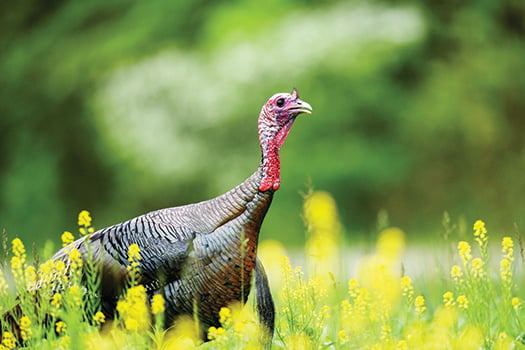Wisconsin Mixed Bag: Oct. 31 deadline to buy Lake Winnebago system sturgeon spearing tags – Outdoor News
Oshkosh, Wis. — The Department of Natural Resources (DNR) reminds all spearers interested in harvesting a lake sturgeon from Lake Winnebago during the 2025 sturgeon spearing season to buy their license by Oct. 31.
There are an unlimited number of licenses available for Lake Winnebago, and residents and nonresidents may purchase a license through the Go Wild system or at any license sales location. All license holders must be at least 12 years old.
Military personnel home on leave during the spearing season and kids who will turn 12 between Nov. 1 and the last day of the 2025 spearing season do not need to buy their license by Oct. 31.
The upriver lakes fishery (Poygan, Butte des Morts and Winneconne) is managed by a preference point system and lottery that is limited to 500 spearers. Successful upriver lakes tag applicants have already been notified for the 2025 season and have until the start of the spearing season to buy a license. Successful upriver lakes applicants may not also buy a tag for Lake Winnebago.
The next sturgeon spearing season opens on Feb. 8, 2025.
MORE COVERAGE FROM WISCONSIN OUTDOOR NEWS:
Bull elk hunters go four for four in first Jackson County, Wis., hunt
Suspects cited in southeast Wisconsin deer poaching case
New either-sex ‘replacement’ deer tags available this fall in Wisconsin
International Bat Week, Oct. 24-31, an Opportunity to Begin Bat Conservation Work
Madison — The DNR will highlight the importance of bats to the state’s ecosystems during International Bat Week, Oct. 24-31.
Bats are vital to many ecosystems and have significant positive environmental, economic and public health benefits. Bats consume large numbers of agricultural pests, saving farmers and foresters billions yearly. A bat helps control bugs in backyards by eating up to 1,000 mosquito-sized insects per hour and up to the equivalent of its body weight every night.
Of the eight bats found in Wisconsin, four are state-threatened species – the big brown bat, little brown bat, northern long-eared bat (also federally endangered) and tri-colored bat – and one, the silverhaired bat, is of special concern, meaning the population is declining and in need of conservation action.
The decline of bats in Wisconsin is primarily due to white-nose syndrome (WNS), caused by a fungus that attacks the bare skin of bats during hibernation. The disease exhausts their energy stores and leaves them vulnerable to starvation before their insect diet becomes available in the spring. In 2014, WNS was first detected in the state at a large hibernation site that was home to 1,000 little brown bats. By 2018, the population there had dwindled to only nine individuals.
While recent survey counts show rebounding numbers at some significant hibernation sites across the state, there’s still a long way to go. “Our program concluded hibernation surveys at our largest sites in early 2024, and we were surprised at how rapidly numbers were rising for three winters in a row,” said Jennifer Redell, DNR conservation biologist and bat program cave and mine specialist.
Jason Riddle the New UW-Stevens Point Wisconsin Center for Wildlife Director
Stevens Point, Wis. — Jason Riddle, Ph.D., was recently named the new UW-Stevens Point Douglas R. Stephens Chair in Wildlife, Extension Wildlife Specialist, and WCW director Riddle joined the WCW in late August.

He had previously worked at UW-Stevens Point as a wildlife professor for 15 years. More recently he was the Gerald and Helen Stephens endowed professor. Riddle’s primary research interests and expertise are in bird conservation and management, emphasizing songbirds and upland game birds. He also has expertise in wildlife statistics.
Riddle said he looks forward to devoting more time to UW-Extension work with the WCW.
Trail Planning Process Underway
Wausau, Wis. — The DNR has started its planning process for a Rib Mountain State Park trail plan, beginning with the implementation of the master plan approved by the Natural Resources Board in December 2022. The concept plan includes all elements of trails at the property that were included in the master plan, including hiking, climbing and bouldering, mountain biking, shared use, snowshoeing, snowmobiling and alpine skiing.
The DNR is working with many local partners, including the Friends of Rib Mountain State Park, Greater Wausau Prosperity Partnership, Marathon County, the village of Rib Mountain, Wisconsin Climber’s Association, Granite Peak Corporation and the Central Wisconsin Off-Road Cycling Coalition. The DNR anticipates a public engagement period in early 2025. More information is available on the DNR website.






